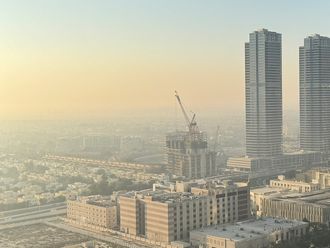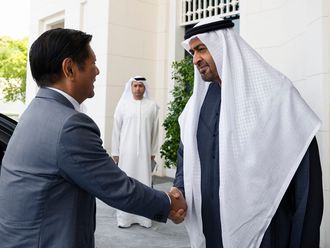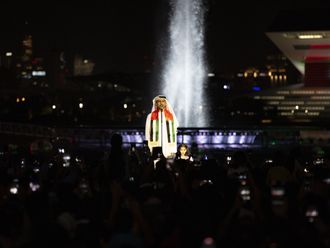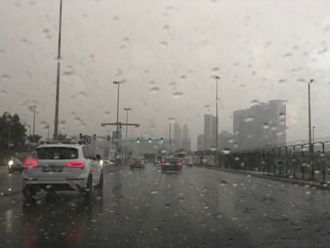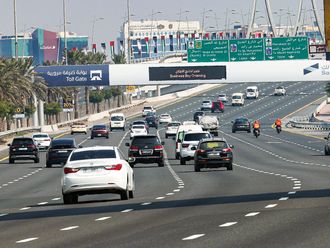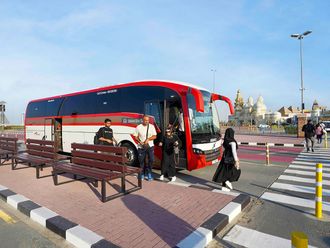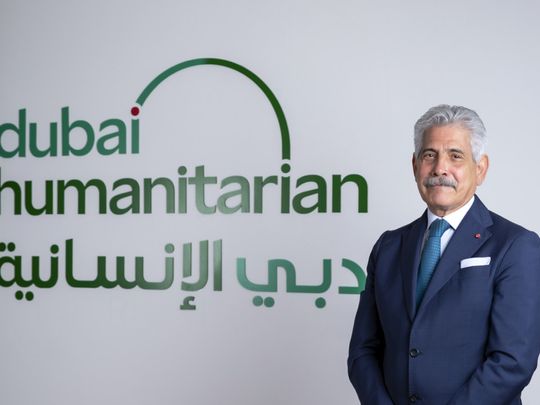
Dubai: As Lebanon experiences a humanitarian crisis from the conflict with Israel, the UAE has intensified its support, stepping in to provide critical aid to those affected.
So far, 100 metric tonnes of essential relief supplies have been dispatched to Lebanon through Dubai Humanitarian alone, the chief of the global logistics hub for humanitarian aid and emergency relief operations told Gulf News.
This significant contribution, with more aid in the pipeline, is part of a coordinated effort to address Lebanon’s urgent needs during this crisis, Giuseppe Saba, CEO and Board Member of Dubai Humanitarian, said in an interview.
He said Dubai Humanitarian has been coordinating with the UAE Ministry of Foreign Affairs and the organisations it hosts, for aiding Lebanon.
“So far, around 100 metric tons of relief materials have been dispatched from the available stocks of the World Health Organisation [WHO], UNICEF, the International Federation of Red Cross and Red Crescent Societies [IFRC] and the United Nations High Commissioner for Refugees [UNHCR] with a lot more in the pipeline,” he revealed.
Relief materials
According to him, the initial requirements solicited by the Government of Lebanon were for medicines and medical supplies to ensure health assistance. Apart from these, the relief materials that have already been dispatched included shelter equipment as well.
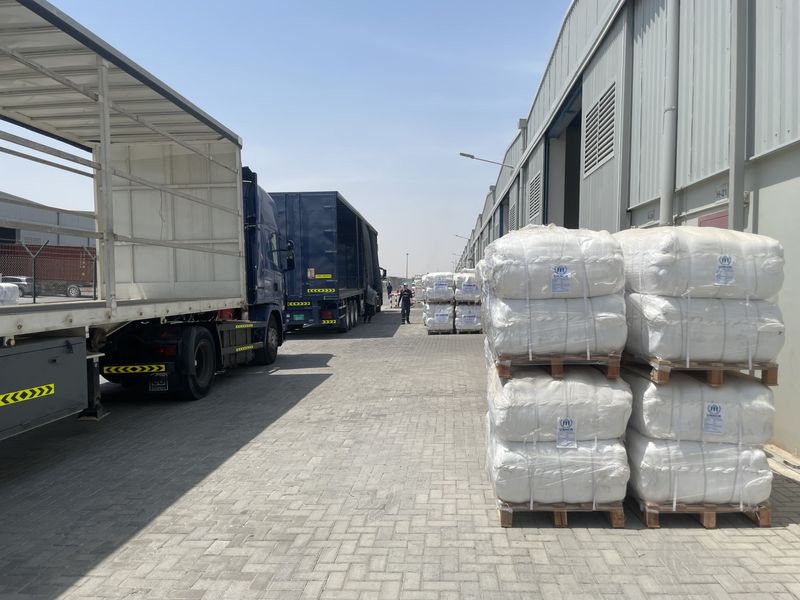
He said the aid has been sourced from the pre-positioned stocks of several international organisations hosted at Dubai Humanitarian.
“The international humanitarian organisations that are hosted in Dubai Humanitarian have pre-positioned relief items ready to be dispatched to countries affected by emergencies. Dubai Humanitarian is a central hub that facilitates the pre-positioning of relief items and supports airlifts for transporting aid to the recipient country.
“We actively encourage and facilitate regular coordination meetings, and streamlined processes, such as joint shipment planning, have enabled these agencies to align their efforts and avoid duplication,” Saba explained.
Dubai Humanitarian has been instrumental in facilitating these aid deliveries, working closely with international organisations that already have a presence in Lebanon. “We collaborate with key agencies such as WHO, UNICEF, IFRC, WFP, and UNHCR to support them in dispatching urgent relief supplies.”
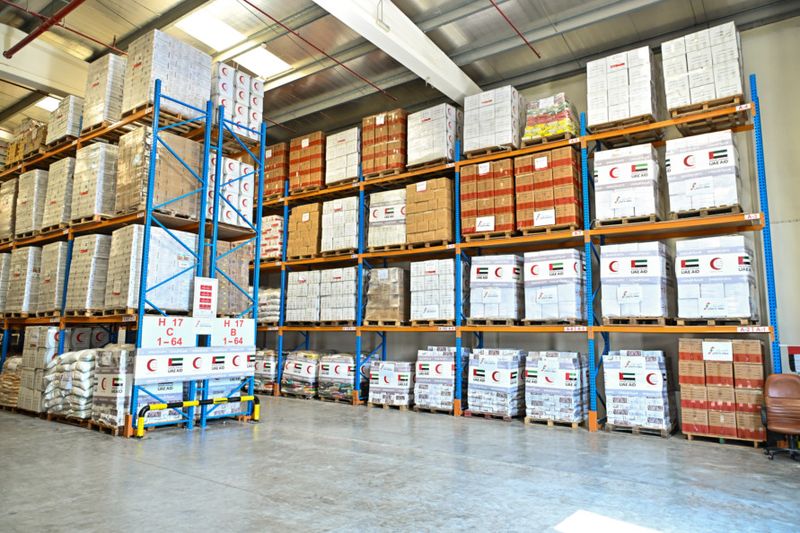
Tackling challenges
The delivery of aid, however, has not been without its challenges.
“Lebanon, like all other conflict zones, presents challenges regarding access to the country via land, sea, and air. The scale of the emergency is imposing immediate deliveries by air, thus ensuring that relief and survival items urgently reach those in need. The fluctuating and worsening security situations can make it difficult to ensure uninterrupted delivery,” Saba explained.
To ensure timely and efficient delivery, some shipments have been transported on military aircraft, thanks to directives from the UAE’s leadership. For this, Dubai Humanitarian coordinates with the Ministry of Foreign Affairs. Additionally, Dubai Humanitarian’s Global Humanitarian Fund has been activated to cover transportation costs when needed, Saba revealed.
Airlifts have been the primary mode of transport due to the urgent nature of the situation, allowing for immediate deliveries of essential relief and survival items.
The strategic location of Dubai Humanitarian, combined with Dubai’s advanced logistics infrastructure, has played a key role in making the humanitarian response more efficient.
“Pre-positioned stockpiles in our warehouses help minimise delays, while the strong government support and partnerships with airlines ensure quick mobilisation and movement of aid. We also rely on real-time data monitoring and flexible shipping routes to adapt to changing conditions on the ground, ensuring aid reaches the people of Lebanon as safely and efficiently as possible,” Saba said.
Upcoming challenges
Looking ahead, he highlighted the ongoing and future needs of Lebanon, particularly with the onset of winter.
“Today, we must cope with the current emergency situation. The priority of the humanitarian community is to save lives and create the best conditions to preserve the dignity of affected populations, including displaced Lebanese and Syrian refugees. With winter approaching, the humanitarian community must ensure that everyone has a roof over their heads. Providing food, health assistance, hygiene, and clean water is the minimum that is owed to them.”
While immediate relief is the priority, Saba also pointed to the long-term challenges that Lebanon faces. “In the long term, the international community will be called upon to support a reconstruction and recovery plan. However, escalating tensions and conflicts add complexity and uncertainty to any emergency response. As humanitarians, our primary focus remains on the people in need,” he said.
UAE’s support
The UAE has shown solidarity in standing with the people of Lebanon during these challenging times under the campaign ‘UAE Stands With Lebanon’.
“The initiatives taken in Dubai and Abu Dhabi have demonstrated the highest expression of generosity in standing with the people of Lebanon. We, as civil society, must continue this support,” said Saba.
Since the launch of the two-week campaign ‘UAE Stands with Lebanon’, the UAE sent a total of 10 relief planes loaded with 450 tonnes of aid materials, WAM reported on Monday.
In the initial week, the campaign collected over Dh110 million worth of food and medical supplies, shelter equipment and other relief materials, the report said.
On September 30, President His Highness Sheikh Mohamed Bin Zayed Al Nahyan had directed the provision of $100 million in humanitarian relief packages to support the Lebanese people. He also allocated $30 million of urgent aid for displaced Lebanese citizens in Syria.


